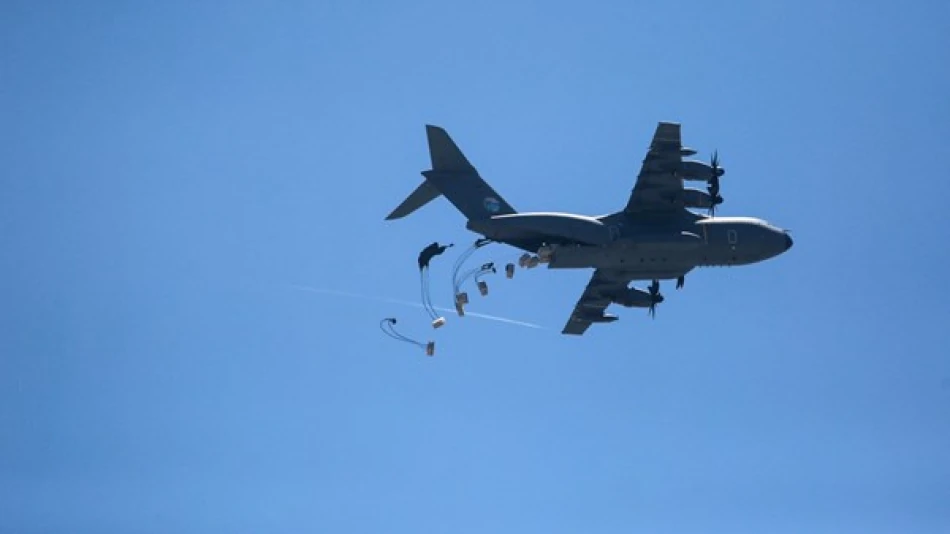
Germany Struggles to Provide Adequate Aid to Gaza, Calls for Increased Efforts
Germany Escalates Gaza Aid Pressure as Humanitarian Crisis Deepens
Germany has ramped up diplomatic pressure on Israel over Gaza's humanitarian crisis, with Berlin acknowledging that current aid delivery remains "insufficient" despite limited progress. The German government's latest stance, following Foreign Minister Johann Wadephul's regional visit, signals growing European frustration with Israel's aid distribution mechanisms and hints at potential policy shifts ahead.
Limited Progress Fails to Meet Crisis Scale
Government spokesperson Stefan Cornelius delivered a measured but pointed assessment Saturday, stating that while Germany had observed "limited initial progress" in humanitarian aid delivery to Gaza residents, the current flow remains inadequate to address the emergency situation on the ground.
The statement followed Wadephul's two-day visit to the region Thursday and Friday, marking Germany's most direct diplomatic engagement since the crisis escalated. Cornelius emphasized that Israel remains obligated to ensure full aid delivery, a reminder that carries particular weight given Germany's historically strong support for Israeli security.
Military Airdrops Signal Policy Evolution
Germany's decision to begin military airdrops Friday represents a significant tactical shift. The German military delivered approximately 14 tons of food and medical supplies in its first two flights, joining a growing coalition of nations bypassing traditional ground-based delivery channels.
This aerial approach mirrors recent moves by the United States, Jordan, and other allies, suggesting a coordinated international response to perceived Israeli restrictions on aid flow. The airlift strategy, while less efficient than ground convoys, provides immediate relief while maintaining political pressure for systematic improvements.
Diplomatic Pressure Points Under Review
Perhaps most significantly, Cornelius revealed that Germany's security cabinet discussed "various known options for applying pressure" during Saturday's meeting, though no decisions were reached. This deliberation suggests Berlin is actively considering policy tools beyond diplomatic statements and humanitarian aid.
Such options could range from conditional military cooperation agreements to economic measures, though Germany's approach will likely remain more measured than calls from some European partners for arms embargoes or trade restrictions.
European Consensus Building
Germany's position reflects broader European Union frustration with aid delivery mechanisms. Unlike the United States, which maintains significant military aid leverage, European nations are exploring alternative pressure points including diplomatic isolation, international legal proceedings, and coordinated humanitarian interventions.
The timing coincides with growing international legal scrutiny, including proceedings at the International Court of Justice, where European testimony could prove influential. Germany's measured escalation suggests Berlin is positioning itself as a responsible mediator while maintaining credible pressure on all parties.
Strategic Implications for Regional Stability
Germany's evolving stance carries implications beyond immediate humanitarian concerns. As Europe's largest economy and a key NATO ally, German policy shifts often signal broader Western recalibration on Middle East issues.
The combination of military airdrops, diplomatic pressure, and cabinet-level discussions about additional measures suggests Germany is preparing for a potentially prolonged engagement. This approach balances immediate humanitarian imperatives with longer-term strategic relationships, positioning Berlin as both a crisis responder and a credible mediator for eventual political solutions.
Most Viewed News

 Layla Al Mansoori
Layla Al Mansoori






